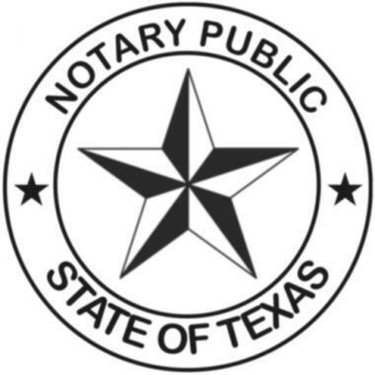don't wait. get your document notarized today! Call or text proactive mobile notary at 515-238-6201.
houston mobile notary | HOUSTON MOBILE INK CARD FINGERPRINT | HOUSTON MOBILE APOSTILLE | HOUSTON MOBILE I-9
How to find hospital notary services for medical documents
HOSPITAL NOTARY
Hanh Le
9/1/2025


Why you might need a hospital notary in Houston, Texas
Life happens, and sometimes that means you’re unprepared for the legal documents required when your absence affects everyday life. Long-term recovery or terminal hospitalization might require urgent notarization to protect your final wishes and/or designate others to act on your behalf financially or medically in the event you cannot.
We understand that your unique circumstances might leave you feeling unsure of what to do next, but we can help with a prompt and friendly mobile notary expert right in the convenience of your hospital room or bedside.
We provide notary services at the following facilities:
Houston Methodist Hospital
Memorial Hermann Greater Heights Hospital
St. Joseph Medical Center
Houston Methodist West Hospital
West Houston Rehabilitation and Healthcare Center
West Oaks Nursing Home
SilverCrest Assisted Living and Memory Care
Copperfield Healthcare and Rehabilitation
North Houston Transitional Care
and many more... please call or text to 515-238-6201 to request for other locations.
Note: Remember that notary professionals cannot provide legal services, draft documents, or give any legal advice. It is best to seek out a qualified attorney to answer any legal questions prior to your notary appointment.
What you will need to notarize a document
To prepare for document notarization, there are a few important things that you need to have on-hand.
First, you need the document itself, as the notary needs to review and verify the notarial certificate before proceeding with the notarization process.
Second, you need a government-issued photo ID so the notary can verify your identity, such as a valid driver's license or passport.
On the day of your notary appointment, bring the document and your ID with you. The notary will review the document to ensure that the notarial certificate is complete and correct, then they will ask you to confirm that the contents are accurate. Afterwards, the notary will ask you to sign the document in front of them. Simple.
Basic notary requirements
A notary requires at least the following:
The physical document you want to sign and have notarized
A government-issued photo ID, such as valid driver’s license or passport
All witnesses present [as needed] with a government-issued photo ID present.
Special considerations for hospital notarizations
A notar public considers the following special circumstances in their notarial process for hospitalized patients:
Are they able to appear in person?
Are they competent and willing to sign?
Can they sign their name without assistance?
Are they under duress or pressure from another party to sign?
Completing the document notarization process
After the notary verifies all requirements, they will then affix their official seal or stamp onto the document, which includes their signature, date, and any other required information such as the location and time.
Documents commonly notarized
The most commonly notarized documents for hospitalized patients might include but are not limited to:
Affidavits: A sworn written statement made by a person voluntarily.
Powers of Attorneys: Electing someone to act on an individual's behalf financially or medically while they are alive.
Contracts: A legally-binding agreement between two or more parties.
Wills: An individual’s wishes on how they want their assets distributed and guardianship handled after death.
Trusts: A fiduciary agreement where an appointed trustee holds on to designated assets for beneficiary distribution before or after the individual's death.
Living Wills and Healthcare Directives: An individual’s medical care wishes in the event they are unable to make decisions for themselves.
Guardianships or Conservatorships: One or more people appointed to make decisions on an individual’s behalf due to age or disability or for their dependents.
Grant Deeds, Quitclaim Deeds, or a Transfer of Property Ownership: The transfer of property ownership from one person to another.
Need a Notary? Contact ProActive Mobile Notary Today!
For reliable and flexible notary services in Houston and surrounding areas, including Brazoria County, Fort Bend County, Waller County, and Montgomery County, ProActive Mobile Notary is here to assist with your important legal documents.
Why Choose Us?
Convenience: We come to you! Our service is designed to fit your busy schedule.
Wide Service Area: Serving Houston, Katy, Cypress, Richmond, Stafford, Missouri City, Sugar Land, Rosenberg, Fresno, Pearland, Pasadena, and surrounding areas in Harris and Fort Bend Counties.
Contact Us:
Phone: (515) 238-6201
Mobile Service: Schedule a time and place that fits your needs.
Home Office (by appointment): Rolling Creek, Houston, Texas 77084
Hours: 7 days a week, from 9:00 a.m. to 9:00 p.m.
Please remember that I am not a lawyer and cannot provide legal advice.
LEGAL DISCLAIMER:
I am not an attorney licensed to practice law in Texas and may not give legal advice or accept fees for legal advice. Under the Texas Admin. Code Rule § 87.40, A Notary Public is prohibited by law to act in the capacity of an attorney, give advice in preparing legal documents, issue identification cards, distribute confidential information or perform any notarial act unless the signer is present. Any questions about your documents should be addressed to the lender, title company, or an attorney. We are not a government agency and apostille authentication is power that the government has. The role of a notary is to authenticating signatures and providing courier services to clients for their apostille documents.
© 2025. All rights reserved.
ProActive Mobile Notary brings expert, affordable mobile notary and document services directly to you across Houston, Katy, Cypress, Richmond, Sugar Land, and surrounding areas in Harris and Fort Bend Counties. Founded in 2019, we offer convenient home visits for all your notarization needs, including real estate documents, wills, trusts, affidavits, and power of attorney. Beyond general notarization, we specialize in FBI ink fingerprinting, apostille services / document authentication, and I-9 verification. We're certified, experienced, and available after-hours and weekend for flexible scheduling, with a Texas notary embosser seal on hand. Prefer to come to us? Our home office is also available by appointment for your notarization needs.
THANK YOU FOR SUPPORTING MY SMALL BUSINESS! GOD BLESS AMERICA.


Hanh Le, OWNER of Proactive mobile notary, is a licensed and bonded notary public and notary signing agent in houston, texas that has been background checked and screened annually.
We are open 7 days a week | 9:00 A.M to 9:00 P.M | Mobile and non-mobile services available | By appointment only, please call or send text to 515-238-6201
Alief, TX | Cinco Ranch, TX | Cypress, TX | Fulshear, TX | Houston, TX | Jersey Village, TX | Katy, TX | Meadows Place, TX | Memorial, TX | Mission Bend, TX | Missouri City, TX | Pearland, TX | Pecan Grove, TX | Richmond, TX | Rolling Creek, TX | Stafford, TX | Sugar Land, TX | 77084 | 77043 | 77041| 77079 | 77095 | 77040 | 77094 | 77433 | Brazoria County | Fort Bend County | Harris County | Montgomery County | Waller County | Notary Near Me | Mobile Notary Near Me | Houston Mobile Notary


